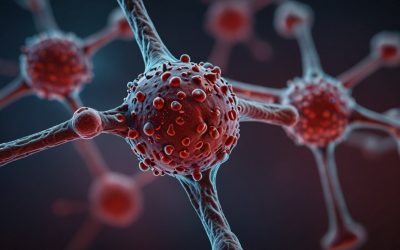Imagine your immune system as a well-trained army, safeguarding the bustling metropolis of your body against foreign invaders. Now, consider the effects of alcohol as a fog rolling in, creating confusion and chaos among the troops. You may not realize it, but every sip of alcohol you take can influence this delicate defense network. As you enjoy your glass of wine or bottle of beer, have you ever wondered how it impacts your body’s ability to fight off illnesses? Alcohol consumption, particularly when excessive, can compromise your immune system, increasing your susceptibility to infections and slowing healing processes. Yet, the relationship between alcohol and immune response is complex and multifaceted, involving various biological pathways and systems. Unraveling this intricate web could be key to maintaining your health, especially in times when your immune system needs to be at its peak performance. What consequences might your casual drinking have on your body’s internal battles, and how can you mitigate potential risks without foregoing your favorite beverages? Let’s explore the sobering effects of alcohol on your immune defenses and what measures you can take to protect yourself.
Key Takeaways
- Excessive alcohol consumption impairs the function of key immune cells, weakening the innate immune response and increasing susceptibility to infections.
- Chronic alcohol consumption reduces lymphocyte counts, impairs antibody production, and disrupts the function of natural killer cells and dendritic cells, compromising the adaptive immune system’s ability to identify and neutralize pathogens.
- Alcohol metabolism produces toxic byproducts that can damage immune cells and organs, leading to liver inflammation and impaired detoxification of harmful substances, further weakening the immune system.
- Alcohol-induced disruptions in the gut microbiome and gut barrier function increase intestinal permeability, allowing pathogens easy access into the bloodstream, triggering systemic inflammation and compromising the body’s defenses against infections.
Immune System Fundamentals
Your body’s immune system, a critical defense network of cells and organs, initiates its protective response against pathogens through the innate system, the first line of defense, and adapts over time via the adaptive immune system to target specific threats. This complex system is your safeguard against disease, utilizing a diverse array of components to identify and neutralize harmful invaders.
The innate immune system provides immediate, non-specific defense against infection. It relies on pathogen recognition receptors (PRRs) to detect common features of pathogens, known as pathogen-associated molecular patterns. This rapid response involves various immune cells, including macrophages and dendritic cells, which engulf and destroy invaders. Furthermore, innate immunity releases cytokines and chemokines—signaling proteins that recruit and activate other immune cells, inducing inflammation to confine and eliminate infections.
Your adaptive immune system, on the other hand, is a more specialized force. It develops a memory of past invaders, ensuring a quicker and stronger response upon future encounters. T cells, central to cell-mediated immunity, directly attack infected cells, while B cells, key to humoral immunity, produce antibodies that tag pathogens for destruction or neutralize them directly.
Together, these two branches form a coordinated defense mechanism. The innate and adaptive immunity systems do not operate in isolation; rather, they engage in constant communication to optimize immune function. Understanding the interplay between these systems is vital, as it underpins every response your body mounts against disease-causing agents. As someone keen on serving others, grasping these immune system fundamentals can empower you to support health and well-being effectively.
Alcohol’s Effect on Innate Immunity

While understanding the immune system’s fundamentals equips you to better appreciate its complexities, it is crucial to recognize how certain lifestyle choices, such as alcohol consumption, can significantly weaken the innate immune response and increase susceptibility to infections. You need to be aware of the complex ways in which alcohol consumption can affect the immune system, particularly the innate immune response, which is your body’s first line of defense against pathogens.
When you consume alcohol, it has a direct impact on innate immunity. To understand this, consider the following points:
- Disruption of Immune Pathways: Excessive alcohol consumption impairs the function of key immune cells, like macrophages and neutrophils, which are vital to your body’s initial defense mechanisms. This impairment weakens your body’s ability to fend off infections and contributes to the development of conditions such as alcoholic liver disease (ALD).
- Gastrointestinal System Effects: Alcohol can alter the gut microbiome and damage epithelial cells, leading to a disrupted gut barrier. This damage makes your gut more permeable, allowing pathogens easier access to your body, potentially worsening diseases like ALD.
- Respiratory System Compromise: Drinking alcohol can weaken the ciliary function in your lungs, impair immune cell function, and compromise the barrier function of the respiratory system. This leaves you more vulnerable to respiratory infections and can increase the risk of acute respiratory stress syndromes (ARDS).
The effects of alcohol on the immune are not isolated to these systems, as the impact can be systemic. By choosing to limit alcohol consumption, you’re making a decision that helps to preserve the integrity of your innate immune response, thereby serving not only your own health but also the health of those around you who may be affected by the spread of infections.
Alcohol’s Effect on Adaptive Immunity
Chronic alcohol consumption significantly undermines adaptive immunity, notably by reducing lymphocyte counts and impairing antibody production, which are crucial for your body’s long-term defense against pathogens. As you delve deeper into the impacts of alcohol on the immune system, it’s evident that the adaptive immune response suffers considerably. Heavy drinkers experience a decreased frequency of lymphocytes, including both CD4 and CD8 T cells, which are vital for your body’s ability to identify and remember invaders. This reduction compromises the immune system’s precision in fighting off infections.
Furthermore, alcohol consumption disrupts the function of natural killer (NK) cells, dendritic cells, and impairs immunoglobulin (Ig) levels, all of which are instrumental in a robust adaptive immune response. Immunoglobulins, or antibodies, are the proteins that recognize foreign antigens and facilitate their removal. When alcohol inhibits their production, your body’s ability to neutralize pathogens is markedly decreased, heightening the risk of infections.
The consequences of alcohol on adaptive immunity extend to vaccine efficacy. For those who drink heavily, the immune response to vaccines is often suboptimal, which compromises the body’s ability to develop long-lasting immunity against diseases. This is a significant concern for public health, as it not only affects individual vaccine recipients but can also impact herd immunity.
Even moderate alcohol consumption in men and women can have measurable effects on the adaptive immune system. While some studies suggest a glass of wine might offer health benefits, it’s clear that alcohol affects the immune system in complex ways, and the risks can outweigh the potential gains, particularly for those who drink heavily. Your commitment to helping others must include an understanding of these health implications, guiding them towards informed decisions about alcohol consumption and overall well-being.
Alcohol Metabolism and Immunity

Delving into the physiological impact of alcohol, it’s clear that its metabolism plays a critical role in modulating the immune system’s efficacy against infections. When you consume alcohol, your liver becomes the primary site for its metabolism. However, this process isn’t just about breaking down a toxin; it also has profound implications for your immune defense.
The liver, already tasked with numerous vital functions, is forced to metabolize alcohol at the expense of other processes. This diversion of resources can compromise both your innate and adaptive immune responses. Here are three key points to consider:
- Hepatic Stress and Immune Suppression: Chronic consumption taxes the liver, leading to conditions such as alcoholic liver disease. This hepatic stress impairs the liver’s ability to support the immune system, reducing levels of key immune cells and compromising the body’s natural defenses.
- Disruption of Gut Barrier Function: Alcohol can damage the gut lining, increasing intestinal permeability. This disruption allows pathogens easy access into the bloodstream, where they can trigger systemic inflammation and immune dysregulation, exacerbating the effects of Alcohol Abuse and Alcoholism on the body’s defenses.
- Impaired Recovery and Resilience: Alcohol’s effects on immunity aren’t limited to increasing infection risk. It also hampers recovery from both infection and physical trauma. A weakened immune system due to alcohol consumption struggles to combat pathogens effectively, leading to prolonged illness and complications.
In essence, the implications of Alcohol and the Immune system interaction are significant. Understanding these effects is crucial for supporting individuals in mitigating the risks associated with alcohol consumption. By fostering awareness and promoting healthy choices, you can help safeguard the well-being of those you serve, ensuring their immune systems remain robust and responsive.
Infections and Alcohol Consumption
Building on the understanding of alcohol’s metabolic impact on immune function, it’s evident that excessive drinking heightens vulnerability to various infections, including pneumonia and postoperative complications. Alcohol can affect the immune system’s competence, making you more susceptible to illnesses that a well-functioning immune system would typically fend off.
When you engage in binge drinking, alcohol impairs key immune cells, such as alveolar macrophages, which are crucial for lung health. These cells are the first line of defense against respiratory pathogens, and their function is compromised by alcohol, leading to an increased risk of lung infections like pneumonia. Moreover, the consumption of alcohol is associated with poor recovery from infections and physical trauma, exemplified by delayed wound healing.
Chronic heavy drinking can lead to a decreased frequency of lymphocytes, vital components of the immune response, thereby increasing the risk of bacterial and viral infections. In the context of chronic viral infections, such as hepatitis C or HIV, this can be particularly detrimental, as the weakened immune system struggles to combat these pathogens effectively.
Additionally, alcohol disrupts the gut barrier, allowing microbes to leak into the circulation. This not only poses a direct risk of infection but also weakens the overall immune response to viruses and bacteria. Furthermore, chronic consumption can impair your body’s response to vaccinations and elevate the risk of autoimmune diseases, where the immune system mistakenly attacks healthy cells.
In supporting others, it’s crucial to understand and communicate that alcohol consumption, especially in excess, is a significant threat to immune health. It is a risk factor for infections and hampers the immune response, which is essential for both preventing and recovering from illness.
Alcohol, Stress, and Immune Function

Examining the interplay between alcohol consumption and stress reveals a complex relationship that can significantly impair immune function, potentially leading to an increased susceptibility to infections. When you consume alcohol, especially in large quantities, it can suppress the immune system by altering cytokine levels, which are crucial for your body’s immune response. Furthermore, stress, which often accompanies heavy drinking, compounds these effects by also dysregulating immune function.
Here’s how alcohol and stress together can weaken your immune system:
- Chronic Heavy Drinking: Regular excessive alcohol consumption is linked to a decrease in lymphocyte frequency, a type of white blood cell, thereby undermining your body’s first line of defense against pathogens.
- Immune Response to Vaccinations: If you’re engaging in chronic heavy drinking, you might find that your immune system’s response to vaccines is less effective. This diminished response is due to alcohol’s interference with antibody production and immune cell balance.
- Gut Microbiome Disruption: Alcohol consumption disrupts the delicate balance of gut bacteria, which plays a pivotal role in the immune response. This can lead to an impaired ability to fight off infections.
According to Alcohol Research by the National Institute on Alcohol Abuse and Alcoholism, even occasional binge drinking can leave you more vulnerable to infections for up to 24 hours post-consumption. As someone eager to serve others, it’s crucial to understand that heavy drinking not only affects your immune system but also hampers your ability to stay healthy and support those who depend on you. By moderating alcohol consumption and managing stress, you can help safeguard your immune system against the detrimental effects of both.
Nutritional Impacts on Immune Response
While moderating alcohol intake is crucial for maintaining immune health, it’s equally important to consider how your nutritional choices can influence your body’s defense mechanisms. You see, the consumption of too much alcohol doesn’t just pose a risk to liver function; it can lead to a weakening of lung function and a general breakdown in the body’s immune system, making it more susceptible to illness.
When you consume alcohol in chronic, heavy amounts, it’s associated with a decreased frequency of lymphocytes—key cells in the immune system—thus compromising your body’s ability to respond to pathogens. Even moderate alcohol intake, while potentially reducing inflammation, may still affect the immune response negatively by impairing the production of antibodies. This impairment affects your first point of contact with pathogens, rendering your immune defense less effective.
Moreover, if you consume alcohol chronically, you’re at an increased risk of infections due to an overall weakening of the immune system. This is particularly concerning since alcohol can also reduce the effectiveness of vaccines, which rely on a robust immune response to generate protection.
Below is a table summarizing the impacts:
| Alcohol Consumption | Impact on Immune System |
|---|---|
| Chronic Heavy Drinking | Decreased lymphocytes, increased susceptibility to infections |
| Moderate Drinking | Reduced inflammation, potential benefits, but may reduce antibody production |
| Impairment of Antibodies | Reduced ability to fight off pathogens |
| Increased Infection Risk | Weakening of the body’s immune defenses |
| Reduced Vaccine Effectiveness | Impaired response to vaccination |
As someone dedicated to public health and serving others, it’s essential to understand these nuances and advocate for not only responsible drinking but also for a balanced diet that supports the immune system.
Alcohol’s Influence on Microbiome Health
Chronic heavy drinking often leads to a disrupted gut microbiome, which can compromise the integrity of the intestinal barrier and heighten the risk of various health issues, including alcoholic liver disease. When you consume alcohol excessively, it’s not just your liver that bears the brunt of the damage. Your gut microbiota, a complex community of microorganisms essential for maintaining gastrointestinal (GI) system health, is significantly affected. This alteration in the microbial environment can lead to a cascade of negative effects on your immune system.
Analyzing how alcohol affects the gut and, consequently, immune health, consider the following:
- Impaired Mucosal Immunity: Chronic alcohol use disrupts the mucosal immune function in the gut, reducing levels of critical immunoglobulins such as IgA and IgM. These immunoglobulins play a key role in neutralizing pathogens and maintaining a healthy balance of gut flora.
- Increased Permeability: Alcohol damages the intestinal lining, increasing its permeability. This allows bacterial cell wall components to translocate into the bloodstream, potentially causing systemic inflammation and heightening the risk of severe lung diseases and other infections.
- Altered Microbiome Composition: In heavy male drinkers, for instance, there is a notable shift in the gut microbiota composition. This imbalance can exacerbate liver disease progression and is associated with a higher prevalence of alcohol use disorder.
The evidence suggests that alcohol-induced changes to the microbiome and the GI barrier have implications that reach far beyond the gut. To protect and serve those struggling with alcohol-related health issues, it’s crucial to address the underlying impact of alcohol on microbiome health. This understanding can lead to better strategies for preventing and mitigating the consequences of alcohol use disorder and related conditions.











